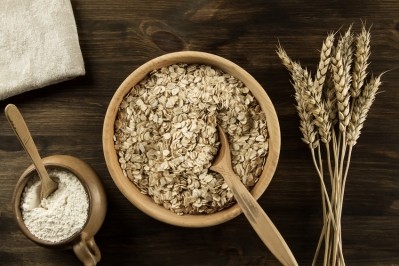Study focus for 'value-added' rapeseed protein isolates
products, has contracted Germany's Fraunhofer Institute to carry
out tests on its Supertein and Puratein products with a view to
finding new added-value opportunities in the functional foods
sector.
According to Burcon, the Fraunhofer Institute will focus primarily on the blood cholesterol lowering activity (bile acid binding) and the antioxidant activity of virgin rapeseed proteins and partly modified rapeseed proteins. These properties will be investigated through in vitro studies, which will look for positive correlations to known in vivo studies.
Investigative procedures will include testing against standard food ingredients and selected pharmaceuticals as benchmarks.
Burcon is keen to exploit the continued growth in the functional food market, basing its logic on the recent rapid growth in soy food sales following the US Food and Drug Administration's approval in 1999 of label claims that products high in soy protein could help lower heart disease risk.
Figures from market anlaysts Datamonitor suggest that there is huge potential in the functional food market in Europe. In 1997, the market was worth €1.9 billion, rising to €2.8 billion by 2002. The anlaysts forecast further growth over the next few years, with sales likely to reach €3.9 billion by 2007, a rise of 6.6 per cent compared to 2002.
"This research could expand the consumer appeal of our products," said Johann F. Tergesen, Burcon's president. "We are continually looking for ways to increase the potential applications and consumer appeal of Puratein and Supertein. It will benefit Burcon and ADM, our partner, if this research leads to greater future sales of our proteins."
Burcon signed a licence and development agreement in September 2003 with US-based group Archer Daniels Midland (ADM) with a view to taking the rapeseed protein products to market, and although the two companies have thus far focused the majority of their efforts on developing a processing facility capable of meeting expected demand, they have also looked at developing product applications for the proteins, and at marketing.
Demand for vegetable protein products has also increased in recent months as a result of sharp increases in animal protein products, Burcon said. Dried egg white prices, for example, are at an all-time high, the company said. Recent crises such as the avian flu outbreak and new BSE discoveries have further fuelled consumers' desires for plant-based alternatives to animal products, Burcon said.
Burcon has commissioned the Fraunhofer Institute to carry out the tests after an earlier review of the proteins by the German organisation back in July 2002 found them to have "extraordinary" functional properties.
The Institute was at the time asked to compare the functional properties of the rapeseed protein isolates with commercial benchmarks including milk proteins (such as Na-Caseinate), soy protein isolates and egg proteins (ovalbumin and egg yolk).
The Fraunhofer report showed that the rapeseed protein isolates had an exceptional purity and that they were almost 100 per cent soluble in neutral conditions. Supertein was also found have good solubility in acidic settings.
Both proteins were shown to have an emulsification capacity and emulsification activity comparable to egg yolk and better than Na-caseinate under certain conditions, while Supertein was also shown to have very good whipping properties - better even than ovalbumin (egg-white). Supertein also had a stable low-level of viscosity, a valuable attribute for some food system applications as well as certain nutritional applications, according to the report.
Both Puratein and Supertein showed better gel-forming properties and higher gel strengths than the reference soy protein used.
Dairy and egg proteins achieve high selling prices, in large part because of their excellent functional characteristics, Burcon said at the time, another indication that the two products have significant revenue potential.
According to a report from market research firm Frost & Sullivan, the US protein market alone was worth $2.64 billion in 2002, with plant proteins making up 47 per cent of total revenue and the balance coming from animal proteins.
Soy protein accounted for approximately 76 per cent of the plant protein side of the market, while milk proteins were the dominant animal protein.







